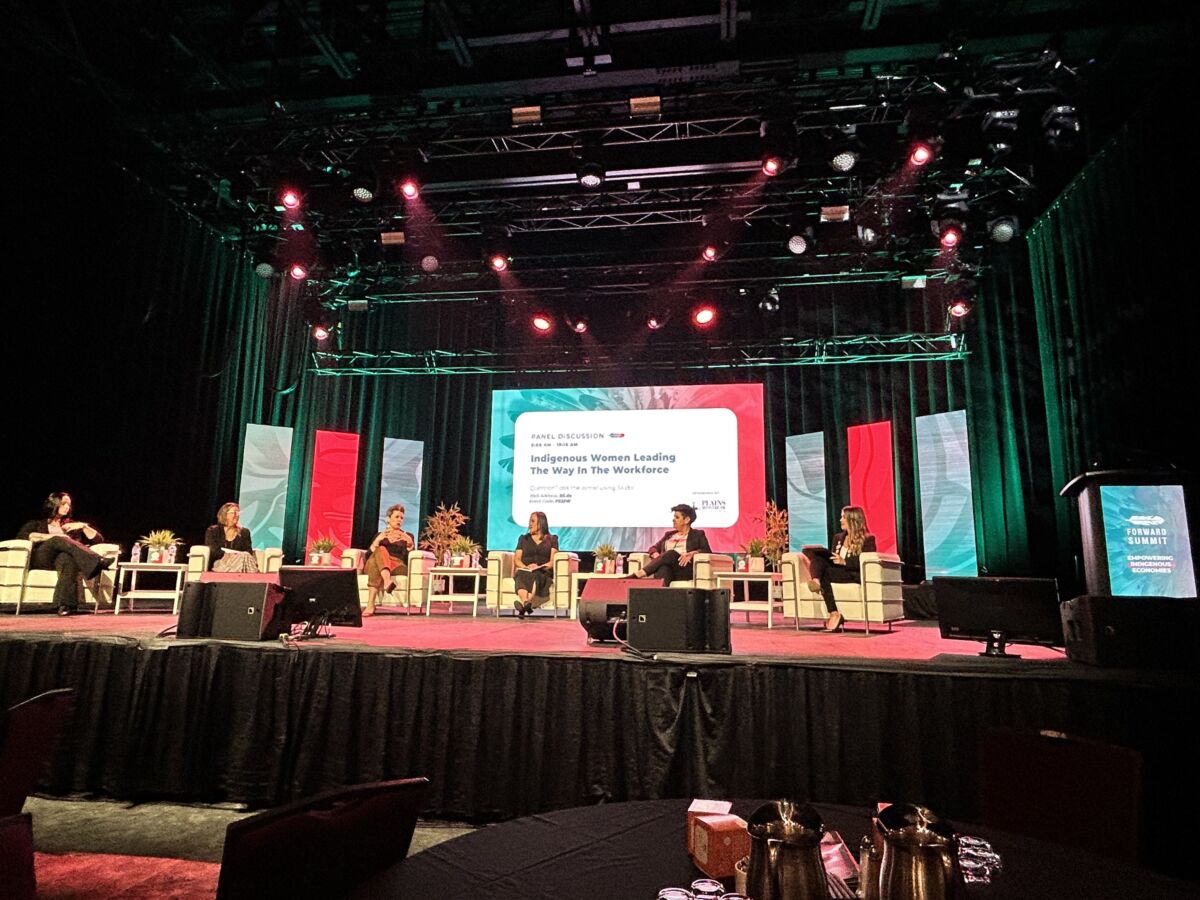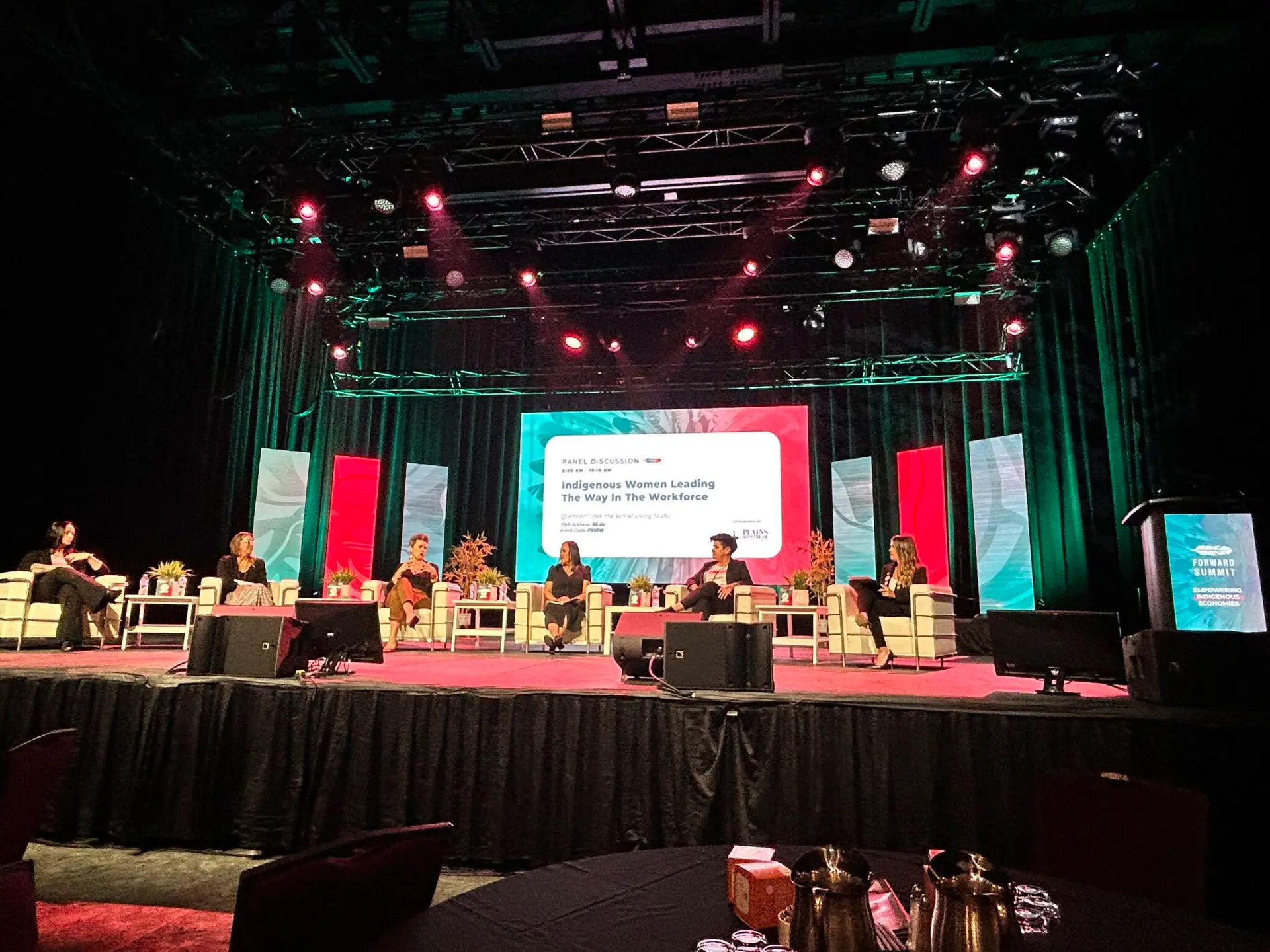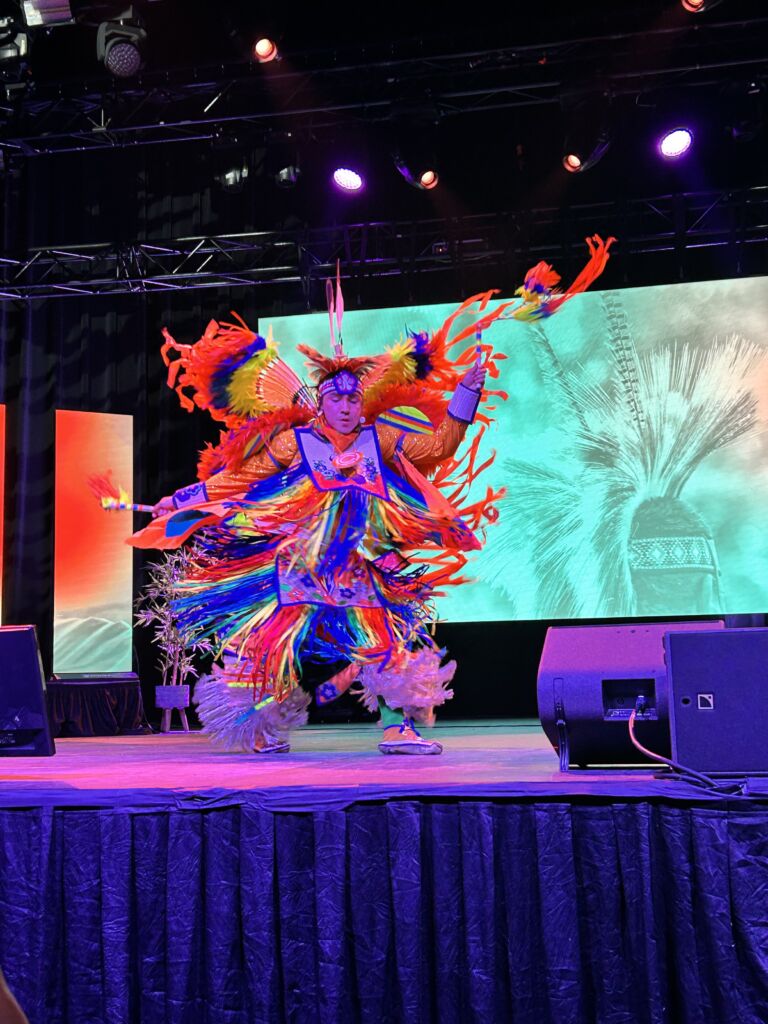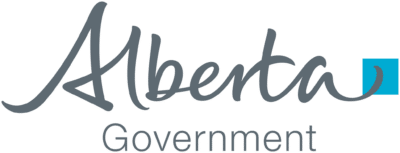Introduction
Last May, I had the privilege of attending Forward Summit 2023. It was a two-day event where industry experts, leaders, and professionals gathered to discuss and explore what reconciliation means for corporate Canada, which includes the responsibility and consideration when working with Indigenous professionals and communities.
I enjoyed the panelists and topics that were centered around inclusivity and change, such as “What does it mean to create a safer, more respectable work environment where Indigenous employees feel safe and understood?” and “What practices and policies need to be implemented to support this change.”
I walked away inspired and enlightened, wanting to share my experience with our readers here at Business Link.
Forward Summit Highlights
I was grateful to listen, learn, connect, and build awareness around current issues other Indigenous employees and communities face, as well as understand how to create and develop meaningful relationships in business.
In between the panels and breakout room sessions, there was an opportunity to network and engage in rich conversations with special guest speakers, partners, event organizers, and those who sat on the leadership council. It was insightful to continue learning and connecting with other professionals who were all there for the same purpose, which was to discover ways and create space for wanting to build a better tomorrow through economic change and development between Indigenous and Non-Indigenous relations. I believe this is what working towards reconciliation is: respecting and understanding barriers and differences while also trying to discover ways to overcome these challenges together.
Overall, there was a sense of support and community during those two days at Forward Summit that felt safe and inviting for all those to participate.
Important Take-Aways
As the event drew to a close, I took the time to reflect on all the meaningful conversations and experiences I had over these two days, learning that:
- Everyone has a responsibility in terms of reconciliation.
- Everyone is deserving of community and connection. Through Indigenous worldviews, everything is connected and, to encourage kinship and healthy relationships in business and organizations, we need to continue or start having tough conversations that are going to lead to progress and positive solutions.
- A strong workforce is built on trust and valuing the needs of their employees. Again, relationship building and developing a workspace where Indigenous employees feel appreciated and understood is crucial.
- True inclusivity is removing barriers by first becoming aware of those barriers. Awareness and knowledge are key.
- To support and manage a healthy workforce, business strategies need to be implemented through inclusive processes and conversations.
Moving Forward
 What does “moving forward in a good way” mean?
What does “moving forward in a good way” mean?
It means being honest and truthful in issues that may affect Indigenous peoples and employees. It’s being accountable of past actions and future actions, and it’s listening to understand than to undermine. Respecting differences helps to create balance and enable solutions.
Conversations are one thing, but real change requires action and putting our best selves forward with an open mind and a compassionate heart when listening and trying to understand Indigenous issues and barriers.
How do we move towards action? Listen, learn, and allow Indigenous voices to be heard within your business and organizations. Evaluate past assumptions and consider behaviors through meaningful conversations with Indigenous employees and people.
Conclusion
When reaching new heights and attaining goals for equitable inclusion, productivity and consistency are high priorities, but patience is also a virtue. Good things take time and care, just like raising children and fostering healthy relationships. People are stronger together when we stand in solidarity with one another and try to understand our differences.
Everyone plays an important role and serves a purpose to sustain and establish good relationships. Without guiding principles or teachings of accountability, there’s no room for improvement. No person or role is greater or lesser than the other, and we all have a collective purpose when wanting to move forward in the right direction toward reconciliation. But, most importantly, it’s not the sole responsibility of one person or one specific group to promote inclusivity, especially if that person or group is the one experiencing exclusion.
It’s never too late to start creating space for change and understanding. A healthy professional work culture is built on communication and trust.
Robyn Soulier-Ritchot
Business Strategist, Business Link
My name is Robyn Soulier-Ritchot, and I am a First Nations Oji-Cree Women from Treaty 1 Territory. My band is Nisichawayasihk Cree Nation, and I now reside on Treaty 7 Territory in Mohkinstsis (Calgary, AB).
I currently hold a position at Business Link as a Business Strategist a part of our Indigenous Services team. I enjoy helping others and being able to guide and serve our clients along their entrepreneurial journey. I believe entrepreneurship is helping to build capacity for those who are driven with purpose in business, and being able to create goods and services they love!






